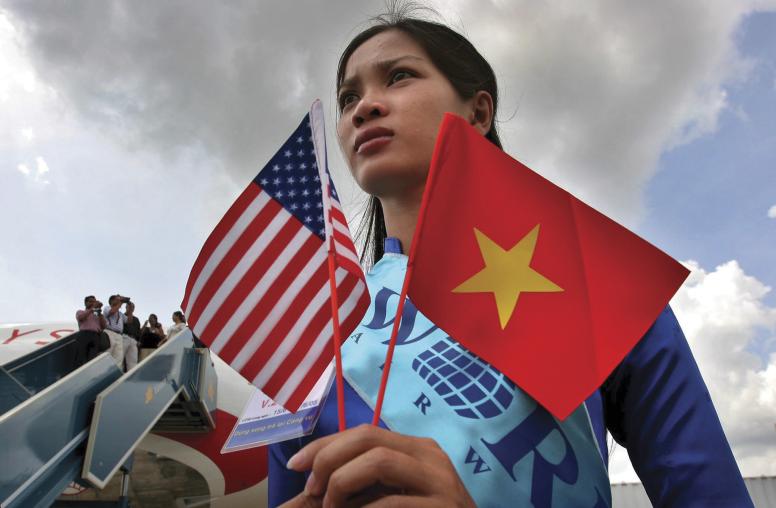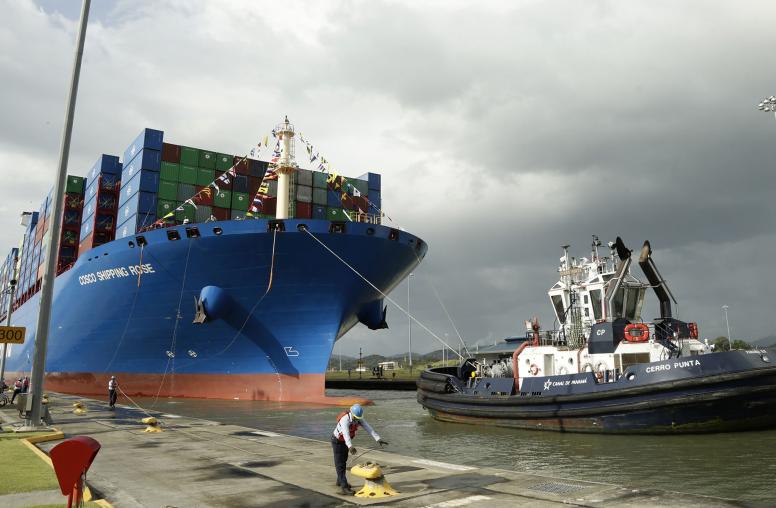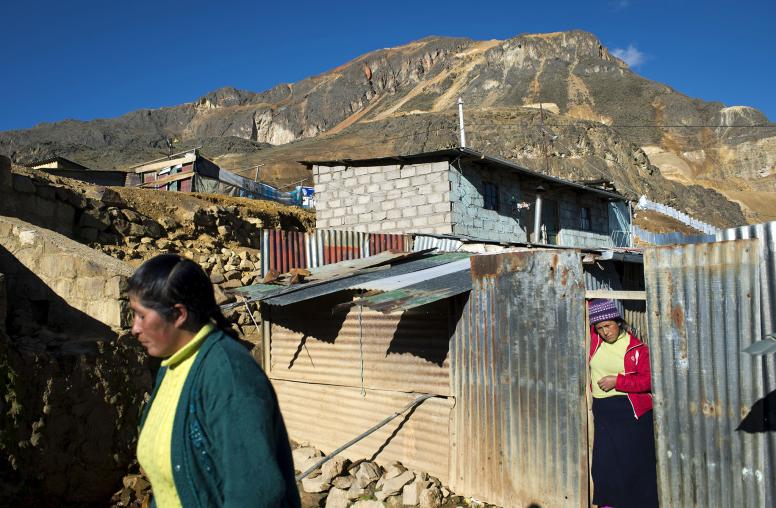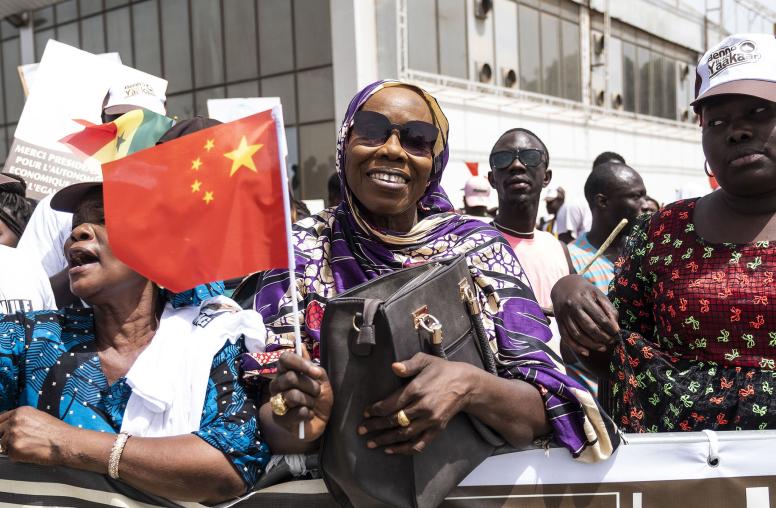Research & Analysis
U.S. Institute of Peace’s articles, reports, tools and other features provide policy analysis, research findings, and practitioner guides. These publications examine critical conflict issues at the center of the Institute’s work to prevent and resolve violent conflict.
The views expressed in these publications are those of the author(s).

The 2022 Pelosi Visit to Taiwan: Assessing US-China Signaling and Action-Reaction Dynamics
In recent years, the United States and the People’s Republic of China (PRC) have found it particularly challenging to interpret one another’s foreign policy signals. Misinterpretation of each other’s signaling may contribute to a bilateral action-reaction dynamic and can intensify into an action-reaction cycle and escalation spiral.

Assessing India’s Perceptions of China’s Nuclear Expansion
China’s ongoing expansion of its nuclear arsenal may be aimed at eventually achieving nuclear parity with the United States. But regardless of the rationale, China’s nuclear expansion, along with possible changes to its nuclear doctrine, are of great concern to India, its neighbor in South Asia. This report—based on interviews with nearly two dozen Indian security experts, including former military and government officials—assesses India’s strategic thinking on China’s nuclear expansion, and what consequences it may have for India’s own nuclear development and US interests in Asia.

China’s Global Security Initiative Takes Shape in Southeast and Central Asia
Since Chinese leader Xi Jinping launched the Global Security Initiative (GSI) in April 2022, it has been used in China’s efforts to expand its international security role and reshape global order. Drawing on field research and discussions with regional policymakers and experts, this report looks at Beijing’s progress in implementing and operationalizing the GSI in the priority regions of mainland Southeast Asia and Central Asia, and it examines key policy implications, explaining why the initiative warrants greater attention on the part of the US policy community.

Australia’s Strategic Thinking on the War in Ukraine, NATO, and Indo-Pacific Security
Russia’s war against Ukraine has spurred closer cooperation between Euro-Atlantic and Indo-Pacific states and organizations, particularly Australia and NATO, signaling a deepening of ties that could have long-term benefits for global security. Over the long term, writes security expert Gorana Grgić, such alignment is crucial for signaling to potential aggressors that global coalitions are prepared to respond. This report analyzes Australia’s response in order to examine Canberra’s strategic thinking with respect to cross-theater cooperation, and it offers recommendations for US, NATO, and Australian policymakers.

The Future of the Security Sector in Ukraine
The aim of this report is to present practical options for advancing Ukraine’s security sector capabilities to consolidate peace and stability as the country transitions from war to peace; the United States Institute of Peace does not take specific policy positions or advocate for specific forms of assistance. Although winning the war rightly remains Ukraine’s highest priority, this report focuses on the security sector issues at the heart of the country’s ability to win the peace. These include tackling corruption; holding the perpetrators of war crimes accountable; integrating veterans into society; and strengthening civilian security.

Pathways to Reconciliation: How Americans and Vietnamese Have Transformed Their Relationship
The road to reconciliation between the United States and Vietnam has not been a straight or easy one. In the years following the Vietnam War, citizen diplomats—veterans, families of the missing, humanitarians, Vietnamese Americans, and others—led the way, reaching across geopolitical and ideological lines. Governments eventually followed, and the two countries normalized diplomatic relations in 1995. This report draws on the theory and practice of reconciliation to identify lessons for strengthening the US-Vietnam partnership and advancing reconciliation between other postconflict countries.

Panama, Ecuador, and China: The Dangers of Short-Term Calculations
The People’s Republic of China has become a significant political and economic force in Latin America and the Caribbean, and engagement with Beijing frequently means more compromise than partnership. This report focuses on Panama and Ecuador, two small but strategically important nations in the region where China has held out the promise of economic benefits in exchange for support for its global ambitions. The report discusses the pragmatic implications of this situation and offers recommendations for Latin American and US policymakers.

China in Peru: The Unspoken Costs of an Unequal Relationship
China’s political and economic influence in Latin America has increased dramatically since the turn of the century. This is especially true in resource-rich countries like Peru, where China has channeled billions of dollars of investment into the oil and mining sectors. This report takes a critical look at the narrative that closer engagement with China is the key to Peru’s future economic development and prosperity, and suggests ways that US agencies, corporations, and NGOs can support Peruvians’ efforts to create a more equitable balance in their country’s relationship with China.

US-China Rivalry in Asia and Africa: Lessons from the Cold War
One of the hallmarks of the Cold War era was a competition between the United States and its democratic allies, on the one hand, and Communist powers, on the other, for the allegiance of countries in Africa and Asia. In an echo of the Cold War, a similar competition between the United States and China is playing out today. This report examines the US-China rivalry then and now and offers insights and lessons that can guide US policymakers as they navigate the contemporary competition.

Traumatic Decarbonization in Fragile States
The process of decarbonization—that is, the replacement of fossil fuels with non-hydrocarbon-based forms of energy—is essential for meeting the climate goals articulated by international agreements. But in fragile, oil-dependent nations, where hydrocarbon revenues are often a key means of political control, decarbonization can spell the difference between peace and conflict. This report examines the consequences of the sudden loss of oil revenues for fragile, conflict-affected states and provides recommendations for policymakers on how to manage future decarbonization peacefully.